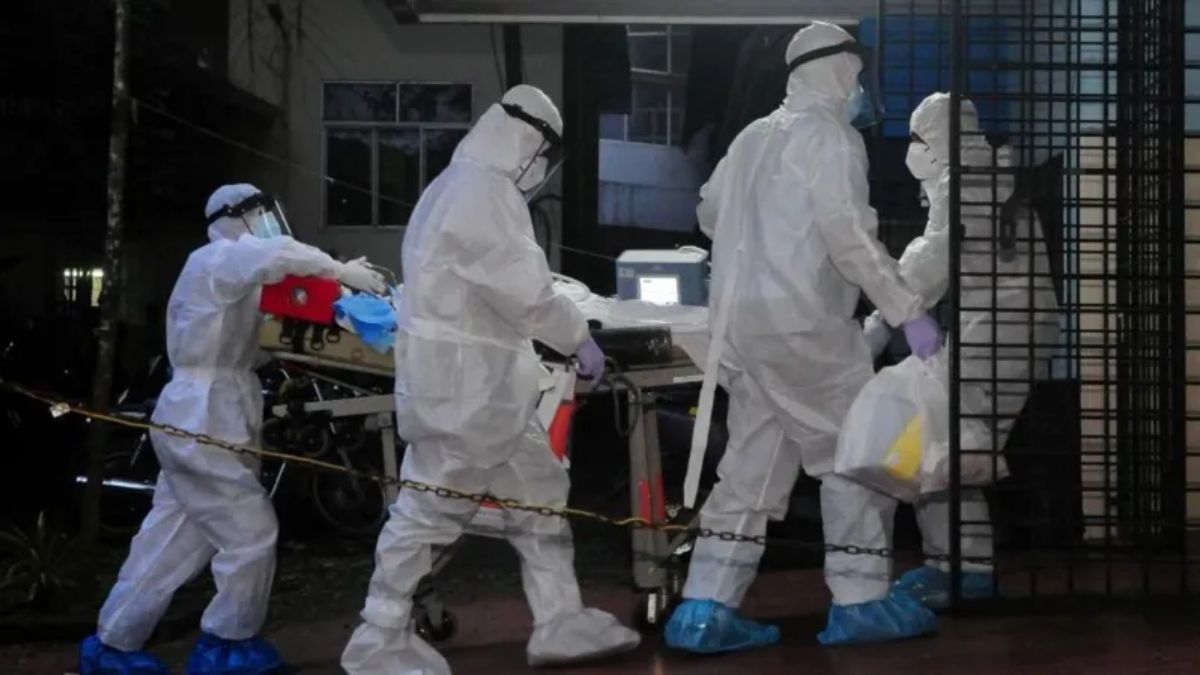The Nipah virus has resurfaced in Kerala, tragically claiming the life of a 24-year-old student from the state’s Malappuram district on September 9th.
This marks the sixth time since 2018 that Kerala has been staring at an outbreak of Nipah, coinciding with the vibrant Onam festival, which has now been overshadowed by growing fears of the deadly virus.
Health officials have so far traced 175 individuals who had contact with the victim and have ramped up measures to prevent a larger outbreak in the district, reported ANI.
Here’s a detailed look at the latest case and the steps Kerala is taking to prevent the virus from spreading further.
According to a report by India Today, the 24-year-old man, who succumbed to Nipah virus, was a student who had returned home from Bengaluru late last month to seek treatment for a leg injury.
He visited four hospitals in search of relief before a private hospital flagged his symptoms to the state health department, suspecting Nipah.
As per the World Health Organization (WHO), the initial symptoms that infected humans show are fever, headaches, muscle pain, vomiting and sore throat.
“This can be followed by dizziness, drowsiness, altered consciousness, and neurological signs that indicate acute encephalitis. Some people can also experience atypical pneumonia and severe respiratory problems, including acute respiratory distress,” says the WHO website.
With a fatality rate between 40 per cent and 75 per cent and no known cure, the zoonotic virus remains a serious threat.
After the student’s death, his swab samples were tested in Kozhikode, confirming the presence of Nipah virus on September 16th. The results were further verified by the National Institute of Virology in Pune.
Following the confirmation, health authorities have scrambled into action to contain the spread of the virus.
What measures have been taken?
Kerala health minister Veena George informed India Today that health authorities have tracked down 175 people in Malappuram district who had come in contact with the deceased.
“Among them, 74 are health workers. We have categorised 104 of these contacts as high-risk. Among them, 10 have been quarantined (at Manjeri Medical College Hospital) and samples of 13 sent for testing,” the health minister further said.
Additionally, 16 of the student’s college mates, who attended his burial, have been advised to self-isolate as a precaution.
The World Health Organization describes the Nipah virus as a zoonotic virus, meaning the virus is transmitted from animals to humans and can also be transmitted through contaminated food or directly between people.
Fruit bats are the usual reservoir of the virus, and humans can become infected by accidentally consuming bat-contaminated fruits or come in contact with its body fluids (such as saliva or urine).
To curb the spread, the state health minister has declared five wards in Malappuram as containment zones and initiated household surveys. Masks have been made mandatory in the district, and social gatherings are now restricted.
Shops in the containment zones must close by 7 PM, and public spaces such as cinema halls, schools, colleges, Madrassas, anganwadis, and tuition centres have been temporarily shut down to prevent crowding.
“The situation is under control. No fresh cases have been reported from the locality. We are keeping vigil on the ground and asking people to mask up,” M. Rajagopalan, a local CPI(M) leader from Thiruvali in Malappuram was quoted as saying in an India Today report.
But why is Kerala so prone to Nipah outbreaks?
Kerala experienced its first outbreak of the brain-damaging Nipah virus in 2018, when the disease struck Kozhikode district, killing 17 out of the 18 infected people.
Since then, the state has seen multiple outbreaks. In June 2019, a 23-year-old student was diagnosed with Nipah in Ernakulam, and in September 2021, the virus claimed the life of a 12-year-old boy in Kozhikode. The year 2023 saw two outbreaks in Kozhikode, with six cases and two deaths reported.
This latest resurgence marks the sixth time since 2018 that Kerala has faced a Nipah virus outbreak. Kozhikode and Malappuram districts have been the hardest hit, with the infection claiming 17 lives in Kozhikode since May 2018.
A Reuters investigation from May last year highlighted that rapid urbanisation and deforestation in Kerala over recent decades have “created ideal conditions for a virus like Nipah to emerge.”
Pragya Yadav, lead scientist on Nipah research at Pune’s National Institute of Virology (NIV), explained that the loss of animal habitats has brought them closer to human populations, “which eventually helps the virus to jump from bats to humans,” Reuters reported.
Dr Yadav further explained that two key factors contribute to Nipah’s reemergence in Kerala: the proximity of human settlements to forests and the state’s enhanced surveillance efforts. “Not just Kerala, in states along the Western Ghats, human habitations are either close to the forest or within the forests,” increasing the likelihood of exposure to infected animals. By contrast, in northern India, forested areas are typically more distant from human habitation.
The World Health Organization (WHO) stresses the importance of preventing the spread of Nipah, advising that “close unprotected physical contact with Nipah virus-infected people should be avoided” and urging regular handwashing after caring for or visiting sick individuals.
With input from agencies

)




:quality(85):upscale()/2025/01/28/814/n/3019466/1217daa0679922e55af3f8.75296975_.jpg)
